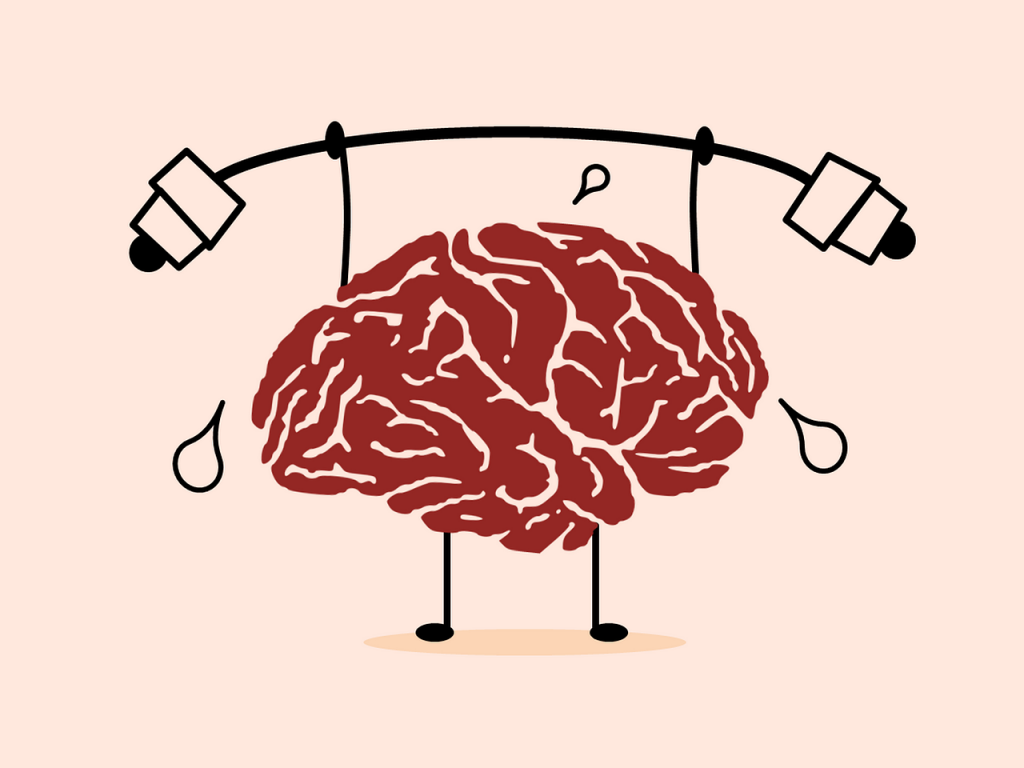Reaching the age of 40 is a significant milestone, often marking the first signs of aging like slower metabolism, stiffer joints, and weight gain. However, these changes don’t have to lead to frustration. With the right approach, healthy aging can bring vitality, strength, and overall well-being.
To optimize your health after 40, it’s important to focus on a balanced approach that includes exercise, proper nutrition, and mental health care. Regular physical activity is essential for maintaining muscle mass, flexibility, and metabolism. Along with exercise, eating a nutritious diet supports energy levels and helps manage weight.
Mental well-being is equally important in promoting healthy aging. Taking time for stress management, ensuring enough sleep, and scheduling regular health check-ups can help you stay on top of your physical and mental health. With these steps, you can age gracefully and maintain a strong, healthy lifestyle well into your later years.

Prioritize Exercise: Keep Moving, Keep Strong
Staying active is key to maintaining health after 40. Regular exercise helps slow down the natural loss of muscle mass, bone strength, and metabolism that comes with aging. It’s not only about staying in shape—physical activity also supports heart health, boosts mood, and promotes mental clarity. Exercising regularly can increase energy levels and improve overall quality of life. By making movement a part of your routine, you can enjoy better health, mobility, and well-being as you age.
Strength Training: A Must-Have for Muscle Maintenance
As you age, your body naturally loses muscle mass—about 3-8% each decade after the age of 30. This condition, called sarcopenia, can cause weakness, reduced mobility, and a higher risk of falls or fractures. To support strong muscles and bones, strength training becomes increasingly important.
Try to include strength training exercises at least twice a week. Choose workouts that focus on all major muscle groups, like your legs, arms, back, and core. This helps maintain balance, stability, and overall strength for healthy aging and better daily movement.
Squats
Push-ups
Deadlifts
Lunges
Rows
Planks
These exercises not only preserve muscle mass but also improve joint function, balance, and flexibility.
Cardio for Heart Health
Cardiovascular fitness is important for keeping your heart healthy, especially after the age of 40. As you grow older, your risk of heart disease rises, making it essential to stay active and support your heart through regular movement. Cardio exercise helps improve blood flow, lower blood pressure, and strengthen the heart muscle.
Try to get at least 150 minutes of moderate-intensity cardio each week, such as brisk walking or cycling. If you prefer more intense activities like running, aim for 75 minutes per week. Staying consistent with cardio helps support healthy aging and long-term heart health.
Good options for cardio include:
Brisk walking
Running or jogging
Cycling
Swimming
Dancing
Hiking
In addition to improving heart health, cardio exercise also helps with weight management, reduces stress, and boosts energy levels.
Flexibility and Mobility: Yoga and Stretching
As we age, our muscles and joints tend to become stiffer, which can affect movement and comfort. Adding stretching or yoga to your routine is a great way to keep your body flexible and reduce stiffness. These exercises help improve joint movement and can lower the risk of injury.
Yoga is especially helpful, as it supports both physical flexibility and mental well-being. It can enhance balance, posture, and even help reduce stress and anxiety. Aim to include yoga or stretching sessions in your weekly routine at least 2 to 3 times for better mobility and relaxation.
Nourish Your Body: Eating for Longevity
Nutrition becomes even more important after the age of 40. As your metabolism slows down, it can be harder to maintain or lose weight, making it essential to watch your food choices. Eating a balanced diet not only supports a healthy weight but also helps protect against age-related health problems.

Proper nutrition can lower your risk of chronic conditions such as diabetes, high blood pressure, and osteoporosis. Focus on eating whole foods like fruits, vegetables, lean proteins, and healthy fats. Staying hydrated and limiting processed foods also plays a key role in supporting your overall well-being as you age.
- Eat a Balanced Diet
A well-balanced diet that includes a variety of whole foods is key to optimal health. Focus on the following:
Lean Proteins: Include sources like chicken, fish, beans, lentils, and tofu. Protein is essential for maintaining muscle mass and promoting tissue repair.
Healthy Fats: Include healthy fats such as avocados, nuts, seeds, olive oil, and fatty fish (like salmon) to support heart health and cognitive function.
Complex Carbohydrates: Choose whole grains, vegetables, fruits, and legumes over refined carbohydrates. These foods provide fiber, which supports digestion, regulates blood sugar levels, and helps maintain a healthy weight.
Calcium and Vitamin D: After 40, bone health becomes increasingly important. Ensure that you’re getting enough calcium and vitamin D to support bone density. Dairy products, leafy greens, and fortified foods are excellent sources of calcium, while vitamin D can be obtained through sunlight exposure and foods like fatty fish, egg yolks, and fortified cereals.
Antioxidant-Rich Foods: Berries, leafy greens, nuts, and seeds are packed with antioxidants that help combat oxidative stress and reduce inflammation, both of which can accelerate aging and contribute to chronic diseases.
- Watch Your Portion Sizes
As you get older, your metabolism naturally slows down, which means your body uses fewer calories for energy. Because of this, portion control becomes more important to avoid unwanted weight gain. You don’t necessarily need to follow a strict diet, but being mindful of how much you’re eating can make a big difference. Focus on eating smaller portions and choosing nutrient-rich foods like fruits, vegetables, lean proteins, and whole grains. These options help you feel full while supporting your health and energy levels.
- Hydration: Drink Plenty of Water
Staying well-hydrated is vital for your body to function properly, especially as you age. Water helps with many important processes, including digestion, detoxification, joint lubrication, and maintaining healthy, youthful skin. However, your sense of thirst may weaken with age, which can lead to dehydration if you’re not careful. Try to drink around 8 cups (64 ounces) of water a day, but remember that your needs might vary based on activity level and climate. Make it a habit to sip water regularly, even if you don’t feel very thirsty.
Prioritize Mental Health: Stay Sharp and Stress-Free
Maintaining mental health after 40 is just as important as physical wellness. With growing responsibilities like work stress, family duties, and health concerns, it’s easy to feel overwhelmed. Taking care of your mind can improve your overall well-being and quality of life. Simple steps such as practicing mindfulness, getting enough sleep, staying socially connected, and making time for hobbies or relaxation can help reduce stress and boost mood. Don’t ignore signs of mental fatigue—talking to a friend or professional can provide support and help you stay emotionally strong and balanced.

- Manage Stress Effectively
Chronic stress can negatively affect your health, contributing to high blood pressure, heart disease, digestive problems, and cognitive decline. Finding effective ways to manage stress is vital for maintaining overall well-being. Techniques such as mindfulness meditation, deep breathing exercises, and spending time outdoors can help reduce stress. These practices promote relaxation, improve emotional resilience, and support mental and physical health, allowing you to better cope with life’s challenges.
Mindfulness meditation: This practice helps calm the mind and improves emotional resilience.
Deep breathing exercises: Slow, deep breathing can activate the parasympathetic nervous system, helping to lower stress levels.
Spending time outdoors: Being in nature can have a calming and rejuvenating effect on the mind.
- Stay Socially Connected
A solid social network plays a vital role in enhancing mental health and emotional well-being. Building and nurturing relationships with family, friends, and colleagues can reduce feelings of loneliness and provide a sense of support. These connections can help you feel happier, more fulfilled, and less isolated. Set aside time to stay in touch with loved ones, whether it’s through regular calls, meetings, or online communication. Additionally, getting involved in social activities like volunteering, joining clubs, or participating in community events can help you feel a stronger sense of belonging and improve your overall mood.
- Keep Learning: Stimulate Your Brain
To keep your mind sharp, it’s essential to continue learning and engaging in activities that challenge your brain. This could include:
Reading new books
Learning a new language
Solving puzzles or playing strategy games
Taking up a new hobby or skill
The more you engage in activities that challenge your brain, the more likely you are to maintain cognitive function well into your 50s and beyond.
- Seek Help When Needed
If you’re feeling consistently stressed, anxious, or depressed, it’s important to seek professional help. Therapy or counseling can provide valuable support and help you develop coping strategies.
The Importance of Sleep: Rest for the Body and Mind
Adequate sleep is vital for good health, but sleep patterns often change as we age. In your 40s, you might find it harder to fall asleep or stay asleep, and frequent nighttime awakenings become more common. Poor sleep can lead to various health problems, including a weakened immune system, weight gain, and increased stress. To maintain overall health, it’s important to focus on improving sleep quality. Creating a consistent bedtime routine, managing stress, and limiting screen time before bed can all help improve your rest and prevent sleep disruptions.

- Sleep Hygiene Tips
To improve your sleep quality, try the following strategies:
Set a regular sleep schedule: Going to bed and waking up at the same time every day helps regulate your body’s internal clock, making it easier to fall asleep and wake up naturally. This consistency promotes better quality sleep and helps align your body’s circadian rhythm.
Limit screen time before bed: The blue light emitted by phones, tablets, and computers can interfere with your body’s production of melatonin, the hormone that signals it’s time to sleep. Aim to stop using screens at least 30 minutes before bedtime to allow your body to naturally prepare for rest.
Create a calming bedtime routine: Engaging in relaxing activities before bed, like reading, meditating, or taking a warm bath, can help signal to your body that it’s time to unwind. These calming practices can reduce stress and anxiety, making it easier to fall asleep and improve sleep quality.
Limit caffeine and alcohol: Both caffeine and alcohol can disrupt your sleep cycle. Caffeine can stay in your system for hours, making it harder to fall asleep, while alcohol may cause disruptions in the later stages of sleep. Try to avoid consuming these substances in the evening to promote better rest.
Create a comfortable sleep environment: Your bedroom should be a peaceful sanctuary for sleep. Ensure that your room is cool, dark, and quiet to create the ideal environment for rest. Using blackout curtains, a fan, or earplugs can help enhance the quality of your sleep by minimizing disruptions.
- The Role of Sleep in Health
Adequate sleep supports a variety of health functions, including:
Improving memory and cognitive function
Strengthening the immune system
Regulating weight and metabolism
Enhancing emotional well-being
Regular Health Check-Ups and Preventive Care

As you age, regular health screenings and check-ups become even more crucial. Preventive care plays a key role in identifying potential health problems early, allowing for prompt treatment before they escalate into more serious conditions. Routine screenings, such as blood pressure checks, cholesterol tests, and cancer screenings, help detect issues that may not show obvious symptoms. These proactive measures can reduce the risk of chronic diseases, improve overall health, and enhance quality of life. Regular visits to your healthcare provider ensure you stay on top of your health and make adjustments to your lifestyle as needed. In your 40s, make sure you stay on top of the following:
Blood Pressure Checks: High blood pressure often develops without noticeable symptoms, making it important to get regular blood pressure checks. Monitoring your blood pressure helps identify potential issues early, allowing for timely intervention and reducing the risk of complications like heart disease, stroke, and kidney damage.
Cholesterol Screening: High cholesterol is a major risk factor for heart disease and stroke. Regular cholesterol screenings are essential for tracking your levels, especially if you have a family history of heart disease. Keeping your cholesterol within a healthy range can significantly reduce the risk of serious cardiovascular events.
Cancer Screenings: Regular cancer screenings are vital, especially as you age. Depending on your risk factors, discuss with your doctor which screenings are appropriate for you. These may include screenings for breast cancer, prostate cancer, colon cancer, and other common types of cancer. Early detection can greatly improve treatment outcomes and increase survival rates.
Diabetes Screening: Diabetes is more likely to develop if you’re overweight or have a family history of the condition. Regular blood sugar testing can help identify prediabetes or diabetes early. Catching high blood sugar levels before they become a serious problem can prevent long-term complications, such as heart disease and nerve damage.
Bone Density Tests: Bone health becomes increasingly important as you age, especially for women after 40. A bone density test measures the strength of your bones and assesses your risk for osteoporosis, a condition that causes weakened bones and increases the risk of fractures. Early detection allows for preventive measures to maintain bone health and prevent fractures.
Don’t skip annual check-ups with your primary care physician, and make sure to address any concerns or unusual symptoms as they arise.
Conclusion
Maintaining your health after 40 requires proactive choices that support your physical and mental well-being. Incorporating regular exercise, eating a balanced diet, and caring for your mental health are essential habits. Staying active, eating nutrient-dense foods, and finding ways to manage stress can significantly improve your quality of life.
Adequate sleep and routine health check-ups are also crucial. Sleep helps with recovery and energy, while regular check-ups ensure early detection of potential health issues. These habits contribute to overall well-being and can prevent many health problems that arise with aging.
Your 40s mark the beginning of a new chapter in life. By taking the right steps now, you’ll lay the groundwork for a long, healthy, and fulfilling life. Investing in your health today will pay off for years to come.
FAQs
- How can I maintain a healthy weight after 40 ?
To maintain a healthy weight, focus on a balanced diet with whole foods, exercise regularly, and include strength training to boost metabolism. Watch portion sizes and stay active. - What types of exercise are best after 40 ?
A mix of strength training, cardio (like walking or cycling), and flexibility exercises (like yoga) is best. These improve muscle mass, heart health, and joint flexibility. - How can I prevent joint pain as I age ?
Strengthening muscles around joints, maintaining a healthy weight, and doing low-impact exercises like swimming or cycling can help prevent joint pain. Stretching is also key. - How much sleep do I need after 40 ?
Aim for 7-9 hours of sleep. Create a consistent sleep schedule, limit caffeine in the evening, and avoid screens before bed to improve sleep quality. - What should I eat to support my bone health after 40 ?
Eat calcium-rich foods (like dairy, leafy greens), get enough vitamin D (from sunlight and fatty fish), and include magnesium (found in nuts, seeds, whole grains) to support bone health.


